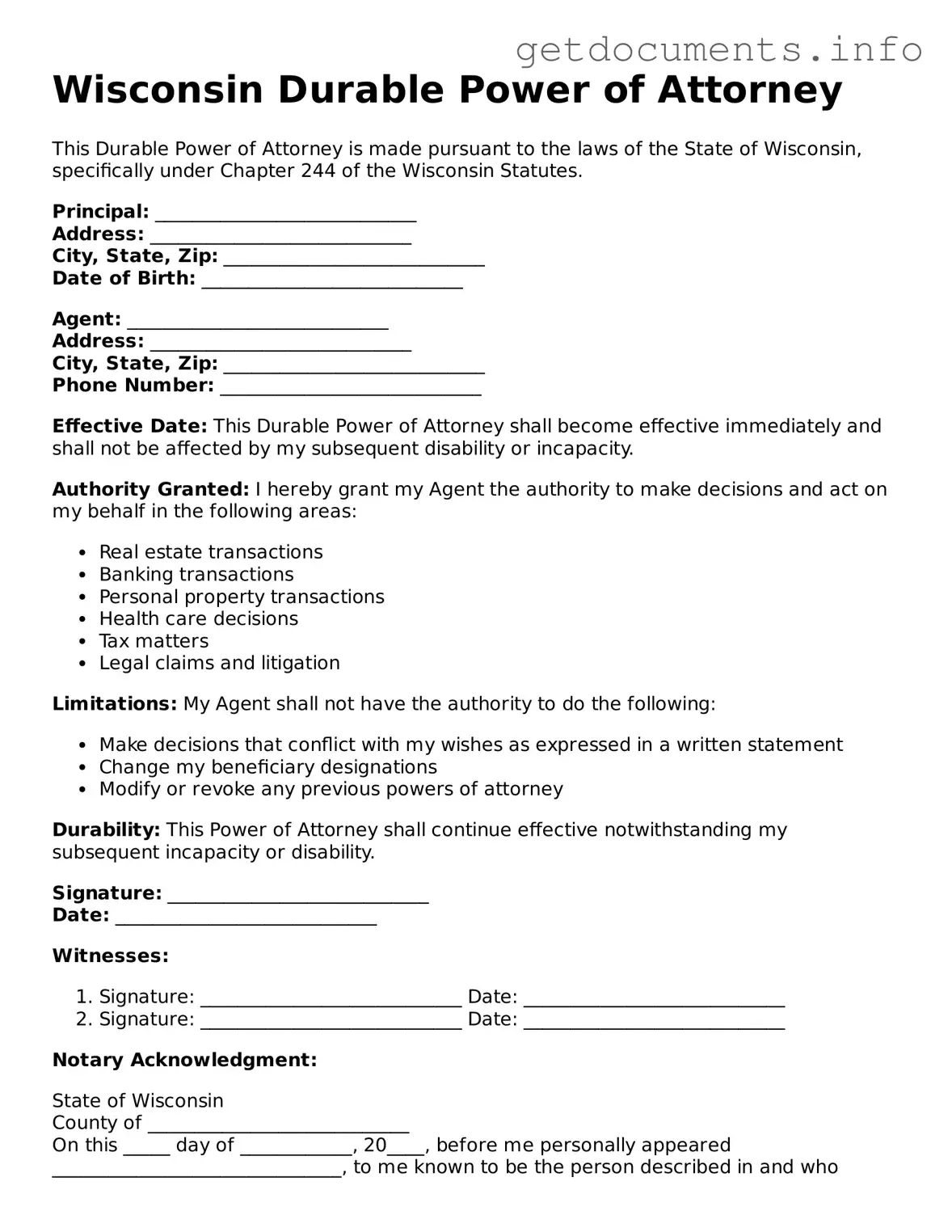Free Durable Power of Attorney Template for Wisconsin
A Wisconsin Durable Power of Attorney form allows individuals to designate someone they trust to make financial and legal decisions on their behalf if they become incapacitated. This essential document ensures that your wishes are respected, even when you cannot communicate them. To take control of your future, consider filling out the form by clicking the button below.
Access Durable Power of Attorney Editor

Free Durable Power of Attorney Template for Wisconsin
Access Durable Power of Attorney Editor
Got places to be? Complete the form fast
Fill out Durable Power of Attorney online and avoid printing or scanning.
Access Durable Power of Attorney Editor
or
⇩ PDF File
